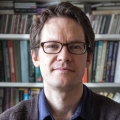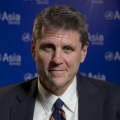
[WEBCAST] Lessons Learned: ‘Flattening the Curve’ in Korea
Where: Asia Society and Museum
725 Park Ave.
212-288-6400 Price: Free
Buy tickets/get more info now
See other events in these categories:
As the reported cases of coronavirus continue to surge rapidly in Europe and the U.S. — governments and public health officials are looking to certain Asian nations for lessons learned in the early days of this global outbreak. History will judge leaders across the globe for the quality and speed of their relative responses, but already some of the “lessons” appear clear. South Korea, to take one prominent example, has managed to “flatten the curve,” the now-common phrase for the slowing of the rate of spread. A mix of robust testing and “contact tracing” have helped safeguard South Korea’s healthcare system, kept the fatality rate low, and helped avoid a catastrophic scenario.
What inspired South Korea’s coronavirus response, and what can the U.S. and the rest of the world can learn from it? Even as case numbers soar in Italy, the U.S. and other nations, are there still valuable lessons to be learned from South Korea’s response? And what is known about the situation in North Korea, which has officially reported no coronavirus cases? Join this special Asia Society global online conversation.



